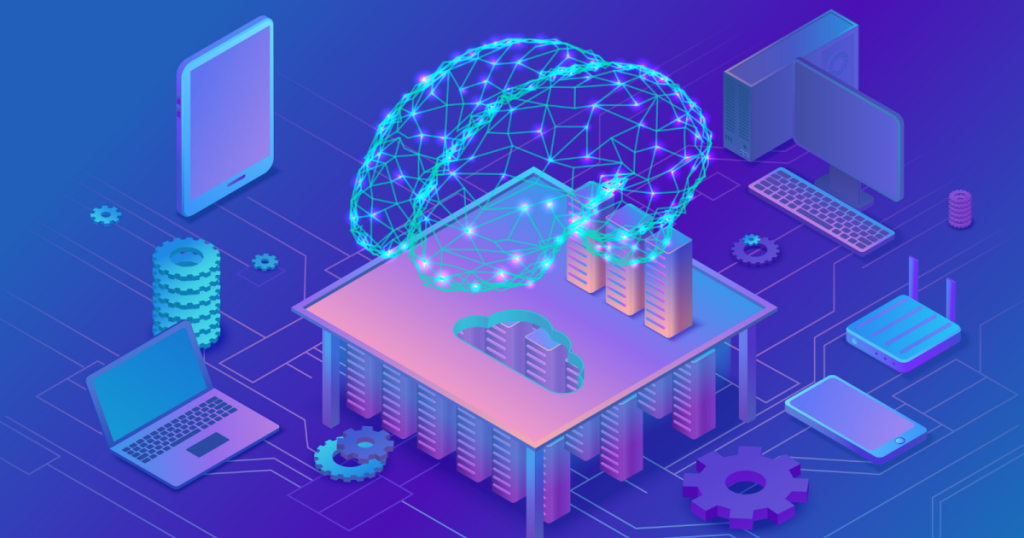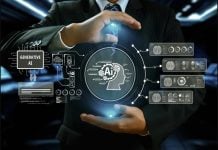
Artificial Intelligence (AI) is rapidly changing the world we live in. From its use in self-driving cars to its development in healthcare, AI is quickly becoming a major part of the global economy. With its introduction, we are seeing an increase in automation, an improvement in productivity, and an overall shift in how businesses operate.
As such, it’s important to take a closer look at the impact of AI on the global economy and how it is shaping the future of doing business. AI is already impacting the way we work, the way we interact, and the way we access information. It is also having an effect on the global economy, with its potential to revolutionize industries and create new markets. In this article, we will explore the various ways AI is impacting the global economy and how it is shaping the future of doing business.
What is Artificial Intelligence?
Artificial Intelligence (AI) is the concept of machines that are able to function and behave like human beings. More specifically, AI is the ability of computers to process information and solve problems using logic and rules, as humans do. This is in contrast to machines that simply follow a set of instructions. AI is the science of creating machines that can ‘think’ and learn the way humans do. AI is used to generate algorithms and models that can learn from data and make predictions like the ones used in the betting industry. To know more about it, click here.
While AI training can be time-consuming, it has a high potential for automation and the ability to scale as needed. AI is commonly used to make decisions based on large amounts of data, predict outcomes, and help humans make better decisions by providing supporting insights. AI can be used to automate repetitive tasks, make decisions, and help users make better decisions by providing supporting insights. AI is used to create computer systems that are able to understand language, process information, and make decisions.
How AI is Shaping the Global Economy
AI is projected to increase global economic growth by up to $15.8 trillion by 2030. The impact of AI on the global economy is expected to be significant and far-reaching. In this section, we will explore how AI is shaping the global economy by impacting automation, productivity, and the shift in business operations. This will include the impact on various industries, potential new markets created by AI, and the challenges of AI in the global economy.
a. Automation
The impact of AI on global economies will be most visible in how it changes the way we automate tasks. AI can be used to automate tasks that are either too complex or too dangerous for humans to do. Currently, AI is being used in a range of industries to automate tasks. AI has been used to automate tasks such as the monitoring and control of various industrial processes, the operation of smart grids, and the operation of self-driving vehicles. This is expected to accelerate as AI technology becomes more sophisticated. Research suggests that AI will be used to automate a range of tasks in all industries. The impact of AI on automation is expected to be significant and far-reaching.
b. Productivity
The impact of AI on global economies will also be visible in how it boosts productivity. AI is expected to result in significant productivity growth across all industries. In this section, we will explore how AI is shaping productivity by impacting the shift in business operations and enhancing worker capacity. This will include how AI is impacting the healthcare industry, how AI is impacting the financial services industry, and how AI is impacting the retail and wholesale industries.
c. Shift in Business Operations
The impact of AI on global economies will also be visible in how it impacts the shift in business operations. AI will enable businesses to achieve greater accuracy and better insights through the use of self-learning algorithms. AI is expected to change the way organizations operate by significantly improving the efficiency of various business processes. AI has the potential to reduce the cost and improve the overall performance of businesses.
AI can help businesses, such as retailers, improve their supply chain management, inventory management, pricing strategy, and marketing strategy. AI provides companies with the ability to create better products and services, while using fewer resources. AI can help organizations address various challenges and grow their businesses by providing more accurate insights. AI can also be used to create new business opportunities and solve some of the world’s most pressing issues.
Impact of AI on Various Industries
The impact of AI on global economies will also be visible in how it impacts various industries. Industries that are expected to be impacted by AI include healthcare, financial services, retail and wholesale, transportation and logistics, and education.
Potential New Markets Created by AI
The impact of AI on global economies will also be visible in how it creates new markets. AI will create new markets by creating new products and services, increasing the adoption of existing products and services, and shifting the demand for products and services in existing markets. AI has the potential to create two new markets by 2021. The first market is an automatic image recognition market that is expected to be worth $12.5 billion. The second market is an AI-powered language market that is expected to be worth $12 billion. These markets are expected to be created based on the growing demand for image recognition and natural language processing services. This will help drive the adoption of AI in various industries. AI also has the potential to create 10 new markets by 2021. AI is expected to be used to create new markets in areas such as healthcare, education, financial services, transportation, and logistics.
Challenges of AI in the Global Economy
The impact of AI on global economies will also be visible in how it impacts challenges. Challenges that are expected to be impacted by the introduction of AI include job losses due to automation, data security and privacy, a potential decrease in the number of start-ups, and the potential for AI to increase inequality.
Conclusion
For around 20 years, the Internet-driven global economy of the late 1990s lifted 2 billion people out of poverty. Technology paved the path for fresh chances, fresh cash, and fresh developments that are still occurring today.
In 2020, the A.I.-driven economy promises a level of comfort that appeals to all of us.
By paying the right price for reskilling, upskilling, and changing behavior, global citizens can live in comfort. Humans have demonstrated their capacity to adjust to significant changes while carrying on with daily activities. Men and women in their 80s are adjusting to the modern world by learning how to use video calls so they may see their loved ones.
Intelligent humans with AI capabilities will keep the AI economy growing.













I can’t believe A.I. didn’t create this new, ultra-leftist trash game named “Lil’ Gator” whose favorite game is “Legend of Hero: Island Awakening”: https://www.msn.com/en-us/entertainment/gaming/lil-gator-game-s-non-binary-differently-abled-representation-is-true-to-its-characters/ar-AA159FNT?ocid=msedgntp&cvid=db36e65bbc154c4381f2dcdcf52db368
“Now more than ever, the desire for diversity and inclusion in games has been at the forefront of people’s minds. With popular franchises like Final Fantasy often falling short in the minds of many, fans have been calling on studios and publishers to better their representation of marginalized identities. Luckily, many indie games hitting the market are more naturally diverse, including MegaWobble’s upcoming Lil Gator Game.”
“While Lil Gator Game does not set out to solve all the industry’s problems with representation, it will show characters who are non-binary and differently abled in a realistic light. Game Rant spoke with artist and director Connor Patrick Quinn about what to expect in terms of diversity and inclusion from the December 14 release.”
“The team behind Lil Gator Game have been very involved in sharing glimpses of the game with fans in anticipation of its December 2022 release, from streaming on Steam to releasing screenshots, trailers, and a demo. MegaWobble has also been involved in events like Jirard Khalil’s IndieLand charity livestream. One screenshot of Lil Gator’s in-game bio details that the character’s pronouns are “They/Them.”
Why do communists like bootleg/knockoff games so much? This game is a ripoff of the Legend of Zelda: Wind Waker.